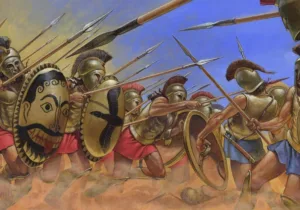When in 1967 the University of Virginia recruited Professor Norman A. Graebner from the University of Illinois to teach diplomatic history, a huge row ensued. It was not because of any doubt of Mr. Graebner’s academic distinction. He was widely recognized as a great scholar of America’s path through the world’s troubled waters for two centuries.
It was the money. When the Virginia General Assembly realized that Mr. Graebner was being paid more than any of those Richmond lawmakers, and possibly more even than His Excellency, Gov. Mills E. Godwin, the people’s elected representatives rebelled.
That floor fracas was perhaps an illustration of the quip, “The reason academic fights are so vicious is that there’s so little at stake!” Happily, the Graebner salary fury quickly disappeared.
Students so avidly sought Mr. Graebner’s courses that they would be the first to close on registration day. But he would soon prove he was worth every cent he earned.
Disappointed students would be delighted to learn he was opening other sections to accommodate eager learners. I was one of those shoehorning into one of his courses. That is how my fraternity brothers were shocked to see me trudging through snow at 7:00 am to reach an eight o’clock Graebner lecture. (My reputation as a “ten o’clock scholar” was too well known.)
I will never forget one of the scenes that I witnessed. After class, we crowded around him with specific questions of our own. One earnest first year man was a bit confused. He wanted to know, “If the US defeated the USSR in World War II, why couldn’t we do so again?”
Mr. Graebner answered the mixed-up youngster with patience, gently setting him right, with no hint of condescension. He never sought to appear the genius of our university stable.
Norman A. Graebner in those Vietnam War days was the sought-after scholar of the realist school of diplomacy. And America never needed his lessons more badly than in those feverish years of massive war protests and, on occasion, acts of violent opposition to “LBJ’s war.”
Graebner’s lectures were an art form. Speaking to a crowded auditorium, he took us back to the beginning of the Republic. It too often seemed that the United States had a wiser, more shrewdly employed realistic foreign policy during our Revolution than we had in the 1960s.
And Graebner was as knowledgeable about the impact in France of the Battle of Saratoga (1777) as he was about the impact in Europe of the Tet Offensive (1968).
His appraisal of the effect of the Emancipation Proclamation on European opinion after January 1, 1863, was the only instance where I dissented from a Graebner thesis. He said world leaders were not moved by Abraham Lincoln’s idealism, but by cold hard judgments of national self-interest.
I thought those rulers—as undemocratic as their governments were—still had to avoid the people’s rage.
They remembered the fate of French kings and nobles who looked down upon the people as canaille. Of the rulers’ cynicism, there could be no doubt.
French foreign minister Talleyrand was said to have been surprised to learn that his Russian counterpart had collapsed in his coach. The unfortunate Slav had died en route to their rendezvous. The wily survivor of the Revolution, Napoleon’s Empire, and the Restoration of the Monarchy, Talleyrand stroked his chin and asked, “I wonder why he did that.”
Only years later did I recognize the antecedents of this most eloquent professor. Visiting a small Lutheran college in Minnesota, I was stunned to look up at a series of long-dead Graebners—generations of Christian academics.
His final lecture in 1968 was unforgettable. He departed from his prepared text to give us some words of hope. He oddly started with a heavyweight boxer, Joe Louis.
Many of us in that post-World War II generation remembered the story of “the Brown Bomber” enlisting in the army. When the heavyweight champion of the world was asked how he could fight for a country with Jim Crow laws in many of its states, Louis famously answered, “What’s wrong with my country is nothing Hitler is gonna fix.”
So, Graebner had our attention from the outset:
Joe Louis was knocked down once. He was knocked down a second time. On the third time, he was knocked out of the ring.
But Joe Louis climbed back into that ring, and went on to knock out his opponent.
The United States of America is like Joe Louis: We have power to spare.
As we survey the scene in America and the world today, we can surely feel that our nation, like Champion Joe Louis, has been knocked out of history’s ring.
Every one of us who heard those stirring words stood to applaud Graebner the Great. And Mr. Graebner’s insight has sustained me to this day.






 Sponsor a student for Christianity & National Security 2024
Sponsor a student for Christianity & National Security 2024